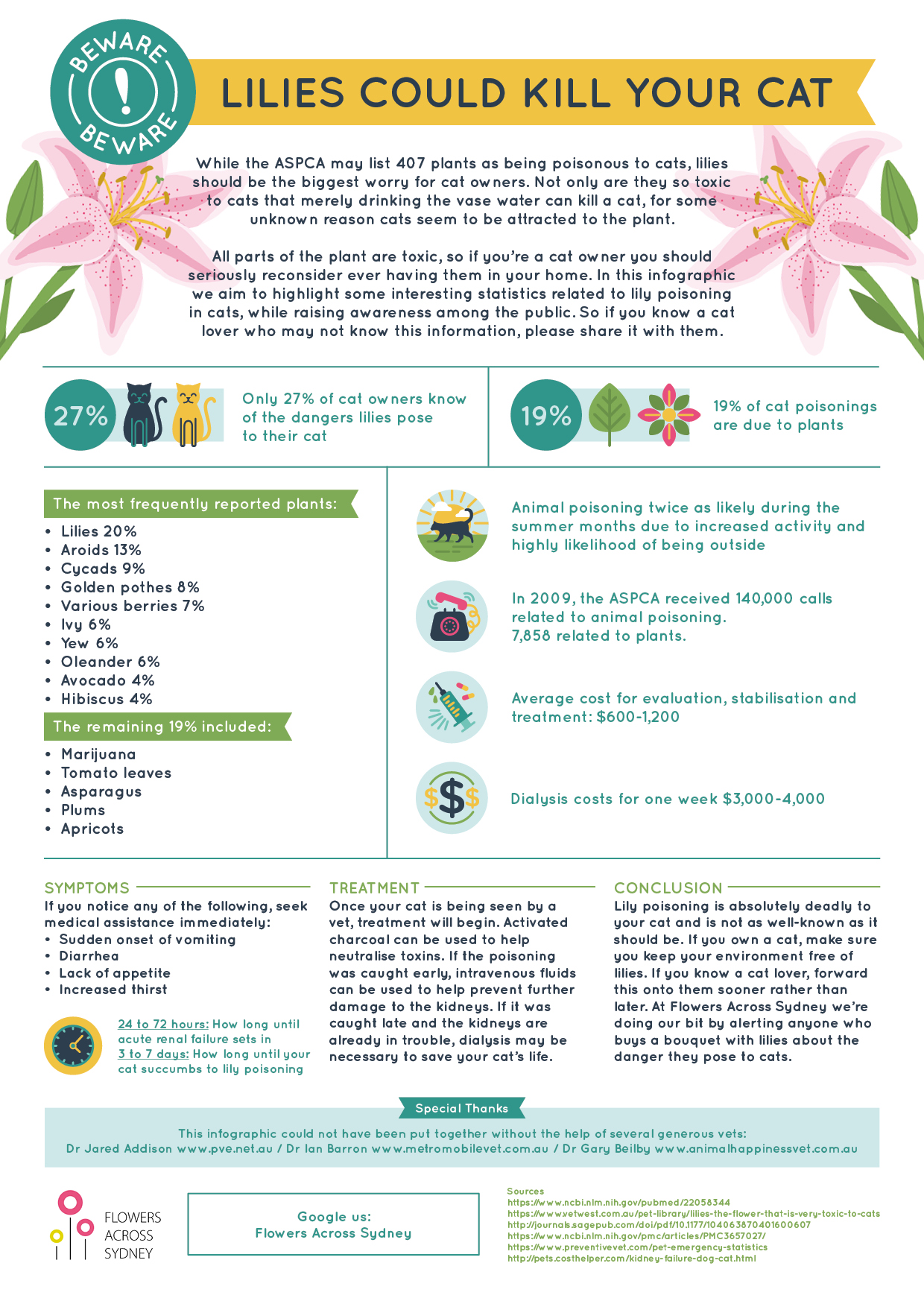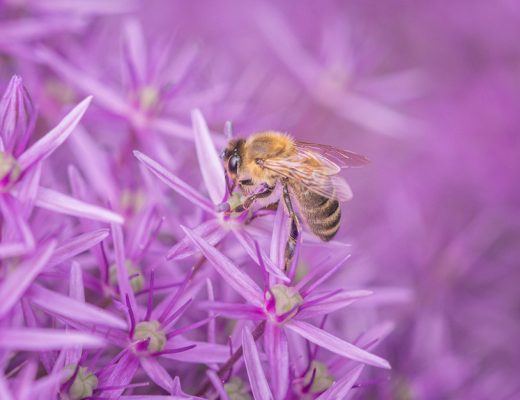Everyone loves to give and receive flowers, but not all are safe to all the members of your home. While some flowers are toxic to humans, they rarely cause problems since most adults don’t react to flowers by eating them. The same cannot be said for pets, who often munch on things that they shouldn’t. The ASPCA lists 407 plants that are toxic to cats, but most don’t cause problems because they’re either not encountered often or cats don’t seem to have a preference for eating them.
As anyone who owns a cat can attest, cats are quite finicky eaters, but are attracted to lilies for reasons unknown. This can often have tragic consequences as lilies are very toxic to cats. While the exact toxin has yet to be identified, it is so potent that merely ingesting some pollen or drinking the water that the lilies were stored in is enough to kill a cat within a few days.
Because of the potency of this poison and the frequency at which it occurs, no other plant causes vets more angst than the lily. To make matters worse, the general public and even cat owners are largely unaware of the dangers. One survey of cat owners whose cats were exposed to the toxin revealed that only 27% knew of the dangers beforehand.
As florists who sell lilies on a daily basis, we want to do our bit in raising awareness of this issue. Right now we’re in the middle of updating our website so that anyone wanting flower delivery in Sydney that contain lilies will be alerted to the danger. We’re also creating a new category of bouquets specifically for anyone who wants to buy cat friendly flowers.
If you’d like to raise awareness too, consider sharing the below infographic. If you have a website you can embed it on your own page, alternatively you can choose to download our print friendly version and print it off so you can place it somewhere visible.
Share this Image On Your Site:
<a href=”https://blog.flowersacrosssydney.com.au/lilies-deadly-to-cats/”><img src=”https://blog.flowersacrosssydney.com.au/wp-content/uploads/2018/05/Cats-Lilies-infographic_online.jpg” alt=”Warning: Lilies Could Kill Your Cat” width=”1240″ border=”0″ /></a>
<strong>Thanks to <a href=”http://www.flowersacrosssydney.com.au”>Flowers Across Sydney</a> for this infographic.</strong>
Download Infographic as a Printable PDF:
Are all lilies dangerous to cats?
Well, it depends on what you consider dangerous. It’s a little more complicated than giving a simple “yes” or “no” answer because what we typically call lilies actually come from a few different families. True lilies come from the family Liliaceae and anything from this family is very dangerous to cats. Day lilies were once classified as true lilies, but are now classified as Hemerocallis. While they don’t belong to the same family, they can still pose a serious danger to your cat.
Other plants, such as the peace lily or Peruvian lily, can make botanists angry if you refer to them as lilies since they belong to different families. And while these are still considered toxic to your cat, they’re not as dangerous as true lilies. They might make your cat feel unwell for a while, but it’s rare to see any serious complications.
Types of Lilies that are mildly toxic to your cat:
- Peace lily
- Peruvian lily
- Calla lily
Types of lilies that are highly toxic to your cat:
- Stargazer lily
- Oriental lily
- Asiatic lily
- Tiger lily
- Day lily
Please note that these lists are not meant to be exhaustive. If you’re unsure of the toxicity of a particular lily, it’s best to keep it far away from your cat.
Are cats attracted to lilies?
Yes. While there are several hundred types of plants that are toxic to cats, most do not cause problems because cats are simply not interested in them. Lilies cause more problems because they are not only toxic, but also very attractive to cats. Scientists have yet to figure out why this is the case.
Cats and lily symptoms:
If your cat shows any of the following symptoms, seek medical assistance immediately:
- Vomiting
- Diarrhea
- Lack of appetite
- Increased thirst
Cats and lily treatment:
Treatment for lily toxicity differs depending on how early it is caught. In the early stages, your vet will likely try to flush the toxins out using activated charcoal and intravenous fluids. If damage has already been done to the kidneys, then dialysis or a transplant are the only other options.
Want to learn more?
In the second episode of their podcast “Two Vets Talk Pets”, Dr Lewis Kirkham and Dr Robbie Anderton discuss lily toxicity in cats.
If you’d like to learn about some cat-friendly alternatives to lilies, Yasaar Nakchbendi has written about them on her blog Chirpy Cats.





Allan
June 18, 2018 at 8:40 pmWow! This is really very informative. Even few florists don’t know that lilies are deadly not just to cats, but dogs as well. The infographic looks really amazing. Will copy the code of the infographic to my next blog post. I will use it as a reference.